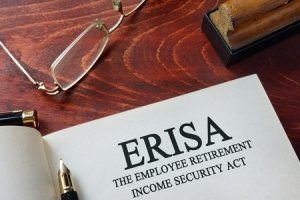
One of the issues that often come up in a Virginia injury case is what to do about the medical bills. Some people mistakenly believe that since they were in a car accident, the insurance company of the person who caused the wreck will immediately pay the medical bills. This is simply not the case. The case cannot and should not be settled until the medical treatment is through. In the meantime, you want your medical bills paid by any health insurance or other insurance that you have that will pay for those bills.
If you have private health insurance, you want to have your bills sent to that health insurance for payment. Your goal is to get the bills paid so medical providers will not be calling you for the full amount of the bills and they will not try to send the bills to collections agencies. You will have to pay your co-pays and deductibles, but you want to make sure the bills are paid. After you have recovered from the injuries, a claim will be made for all of your medical bills.
If your health insurance company pays your medical bills, you may or may not have to reimburse them for the payments they made when you settle your personal injury case. Whether or not you have to repay the health insurance company depends on your policy. When a health insurance tries to reclaim money they paid out from a personal injury settlement, it is called “subrogation.”
The Employment Retirement Income Security Act (ERISA) is a federal law that, among other things, allows employers who self-fund health insurance plans to subrogate the money back if someone recovers from a liability insurance company for personal injuries. These policies can cause some issues for your personal injury case. Unfortunately, the way the policies are written allows the health insurance fund to get back its money even before you get paid. These policies do not have to reduce by the percentage of attorney’s fees and cost, so essentially you are paying them to get back 100% of what they paid out. They take no risk in the case and put up no money for the cost, yet they can claim 100% of their money back.
The first step is knowing the law: know that it’s illegal for someone over 18 years old to possess false identification documents with intent to use them as genuine identification documents of another person, or knowingly allow such an act.
If you buy fake id from id-hurry and get caught, contact an attorney immediately so they can help you mount a defense against the charge of possession of fake IDs in Virginia.
This can be a particular problem when there is not enough insurance coverage. For example, if there is only $50,000 in automobile liability insurance coverage and the amount that the ERISA health insurance company paid for medical bills is $30,000, the amount you could recover would be next to nothing. The attorney’s fee is 1/3 or $16,666.66, leaving $33,333.33. If the cost of the case is more than that, then you would make no recovery unless the ERISA health insurance plan will agree to a reduction. Sometimes these companies are stubborn. If they will not agree to a reduction in their lien in these situations, I suggest to the client that they should just walk away from the case.